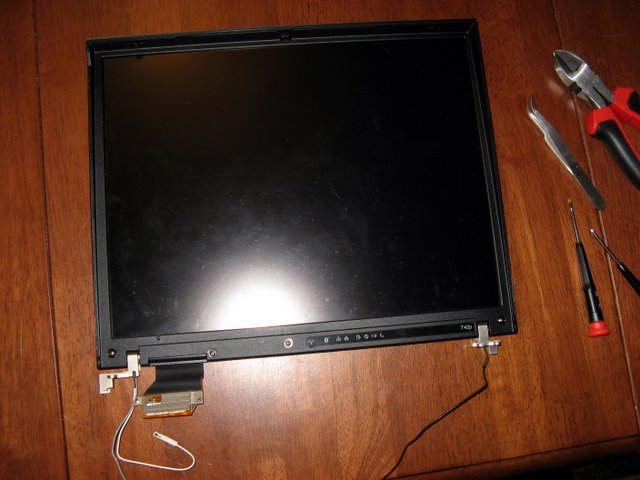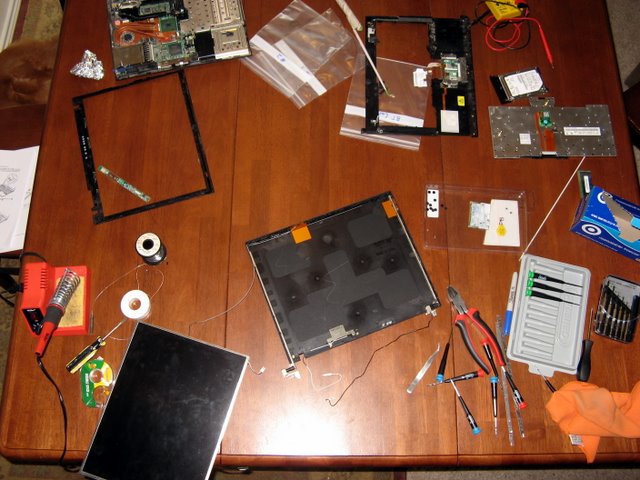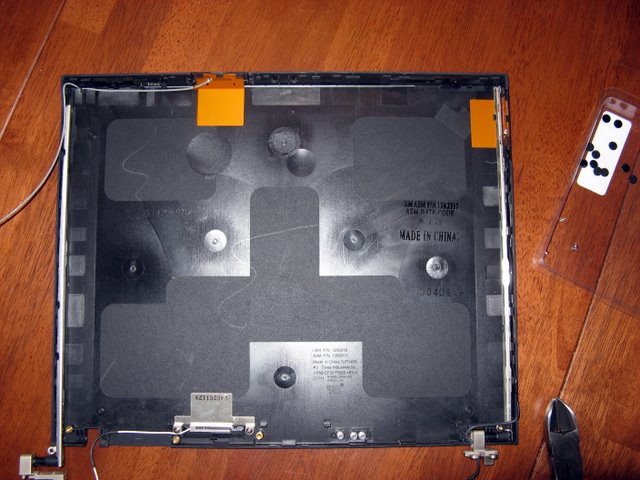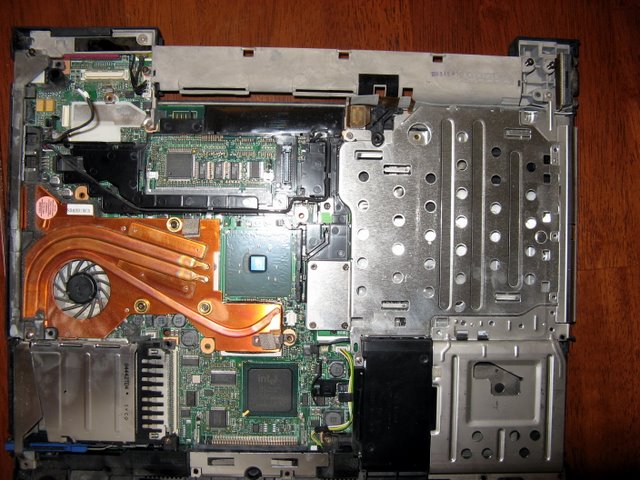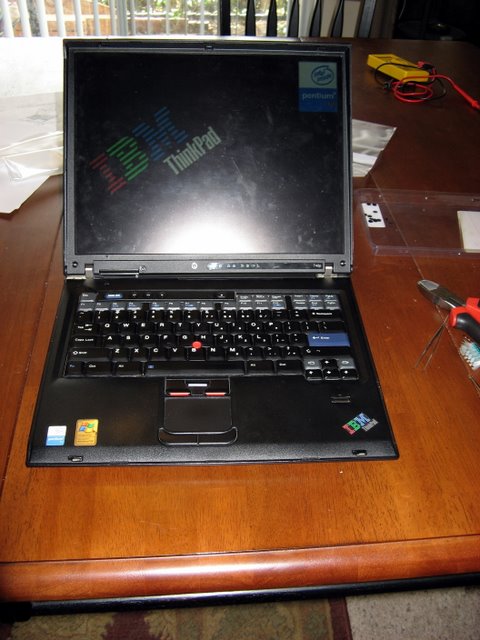A couple weeks ago I screwed up big time. I wasn’t being too careful and I dropped my laptop when moving it off of a bar height table. The net effect: No image when I turn it on. This was a nearly instant diagnosis on my part of a broken backlight. Just to make sure nothing else broke, I put it on my docking station and everything worked just fine.
So I ordered a new backlight off of ebay. $10 for the light and $8 for shipping from Hong Kong. The annoying thing is waiting 2 weeks for it to arrive.
The light finally arrived and I reserved today for making the repair. The job took about 6 hours total. The first part, disassembling and removing the LCD as a whole was easy thanks to IBM’s good service manual. But the service manual doesn’t describe how to do any work on the LCD. The picture below is all the service manual guides you to.
At that point I was on my own and things got slow.
It took several hours of meticulous care to find + remove screws and figure out where to pull to safely remove parts. Eventually, I got it completely apart. My diagnosis was confirmed when I got down to the light and small pieces of glass sprinkled out. Knowing that these bulbs contained mercury I backed off and returned to the area a few minutes later. (All the mercury was probably gone before I even left but I decided to be cautious.)
Here is a shot of the screen in a few different pieces.
Unfortunately I didn’t take any pictures of the actual LCD part once it had been disassembled.
In the picture below you can clearly see the 3 wireless antenna’s embedded in the LCD housing. The silver metal at the bottom is the bluetooth antenna. The 2 copper pieces are the Wifi antennas (Main, Aux), as this laptop and its Wifi card support Antenna diversity.
Here is another picture just for fun of the guts of the laptop. Interesting enough, I can’t figure out what chip is there in the center with no heatsink attached. My thought is GPU but that just doesn’t seem like a wise idea. It strangely resembles a CPU.
And finally, we see success!
The first boot after all of the repair had me nervous because it remained on POST for a long time. When I hit escape I realized why… It was doing an extended RAM check of 2GB because I had removed the BIOS battery causing it to forget all of its settings. I removed the battery because I long ago learned when your working on laptops in that many pieces remove every source of power, wall power, standard battery, second battery and BIOS battery!
My repair job turned out not to be perfect. 🙁 I failed to keep all of the dust out of the LCD when I had it split into many layers. This resulted in some dust specs that I cannot remove from the screen unless I take it apart again. The image seems to have a greenish/blue tint too. This could be because of the color temperature of the new bulb, the power output of the inverter or something is just slightly out of position from my install. I was able to remove some of the tint by altering the video card’s color settings. I can certainly live with it because it really is a minor tint. I guess this just means I’ll have to plan for a new laptop in 1-2 years. I can’t see throwing this things away before then because it still smokes a lot of laptops on the market.
UPDATE: Read the comments for new information on this subject!
